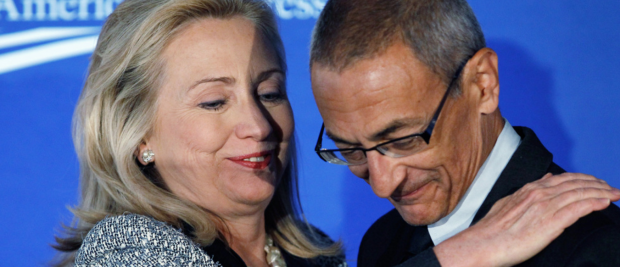The State Department told a federal judge late last week that it would miss another deadline in a Freedom of Information Act lawsuit for Hillary Clinton-era records.
The records requested relate to a 2011 illegal arms trafficking investigation of BAE Systems, a British defense contractor that lobbied the Clinton State Department through a firm with deep personal and political ties to the former secretary of state.
In papers filed in federal court, government lawyers said the State Department would be unable to meet a deadline set for Monday in a lawsuit filed by the Associated Press last March. The government is now asking for an Oct. 17 deadline, which falls just weeks before the general election.
That delay comes after the State Department came under fire last week when it announced that it would not be able to turn over records from Clinton’s tenure related to the controversial Trans-Pacific Partnership until after the election. (RELATED: Obama Admin Promises Clinton Email Dump On A Day That Doesn’t Exist)
The AP’s suit asks the State Department to fulfill its Aug. 2013 FOIA request for documents, memos and reports from State Department officials and Clinton’s office pertaining to the agency’s investigation into BAE Systems for violations of International Traffic in Arms Regulations (ITAR) and the Arms Export Control Act (AECA).
Though BAE allegedly committed 2,591 violations of federal arms control regulations — and also admitted to misleading the government about compliance measures — the firm got away with little more than a slap on the wrist.
State and BAE reached a $79 million settlement agreement in May 2011. That followed a $400 million settlement with the Justice Department the year before.
The fine was to be paid over the course of four years. The State Department also simultaneously imposed and rescinded a “statutory debarment” on BAE Systems. That meant that, for the most part, the company would be able to resume its lucrative business with the U.S. government.

John Podesta and Hillary Clinton; October 12, 2011. PHOTOGRAPH BY CHIP SOMODEVILLA / GETTY
As State was conducting its investigation and determining what actions to take against BAE, the firm did something it had never done before: it directed a lobbyist it had had on retainer for several years — the Podesta Group — to lobby the Clinton State Department.
BAE itself had rarely used outside firms to lobby the agency, federal disclosure reports show. The firm’s in-house lobbying shop carried out most of its contact with the State Department. It hired only one other outside firm during Clinton’s tenure, Covington & Burling.
The Podesta Group’s work for BAE was carried out by just a few lobbyists, one of which was Tony Podesta, the firm’s chairman, co-founder, and a top Clinton campaign financier.
Podesta co-founded the lobbying firm in 1988 with his brother John, who now serves as Clinton’s campaign chairman. Tony Podesta has bundled more than $130,000 for Clinton’s campaign so far this cycle.
The powerbroker lobbied Clinton’s agency for BAE from Oct. 2010 through June 2011, federal records show. The defense company paid out $330,000 during that period, and Podesta focused on “export license issues.”
As The Wall Street Journal noted at the time of the BAE-State settlement, the State Department made a determination on export licenses in BAE’s favor.
“As a result of the settlement, the State Department said it would release an administrative hold it placed on BAE export license authorization requests,” the paper reported.
Stephen Braun, the AP reporter who filed the FOIA request at the center of the lawsuit, noted in that document that the State Department’s consent agreement “allowed BAE to avoid a debarment proceeding that would have prohibited the company from doing business with State and other U.S. government agencies.”
“Learning the State Department’s internal thinking and actions are critical both to understanding why BAE continues to contract with the U.S. and to understanding the role that former Secretary of State Clinton and her top officials played in the process — which could be important to Mrs. Clinton’s possible presidential aspirations.”
Whether the Podesta Group had any impact on that determination or whether Tony Podesta ever talked to Clinton or her top aides is unclear. But the AP is seeking records for any meetings that Clinton, her immediate aides and other State Department officials involved in discussions about BAE might have had.
In explaining its failure to meet the latest deadline and its need for an extension to turn over the records, State Department lawyers blamed a backlog of Freedom of Information Act requests and lawsuits — one which is largely due to Clinton’s use of an off-the-books email system. They also said that many of the documents involved in the request contain highly sensitive information and that third-party entities must still okay the release of some of the records.
“Consequently, the documents raise a variety of national security concerns, international relations issues, and issues relating to disclosure of commercial business information belonging to third-party companies, often in combination,” the government stated.
“Defendant now seeks a further extension of the production deadline, until October 17, 2016. Defendant proposes that it make interim productions on June 13, July 18, August 22, and September 19, 2016,” the filing reads.


